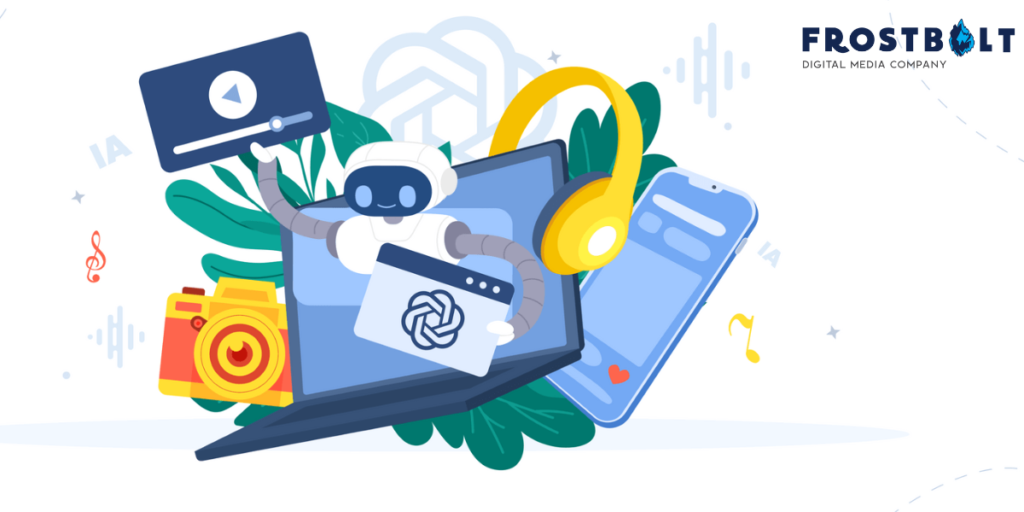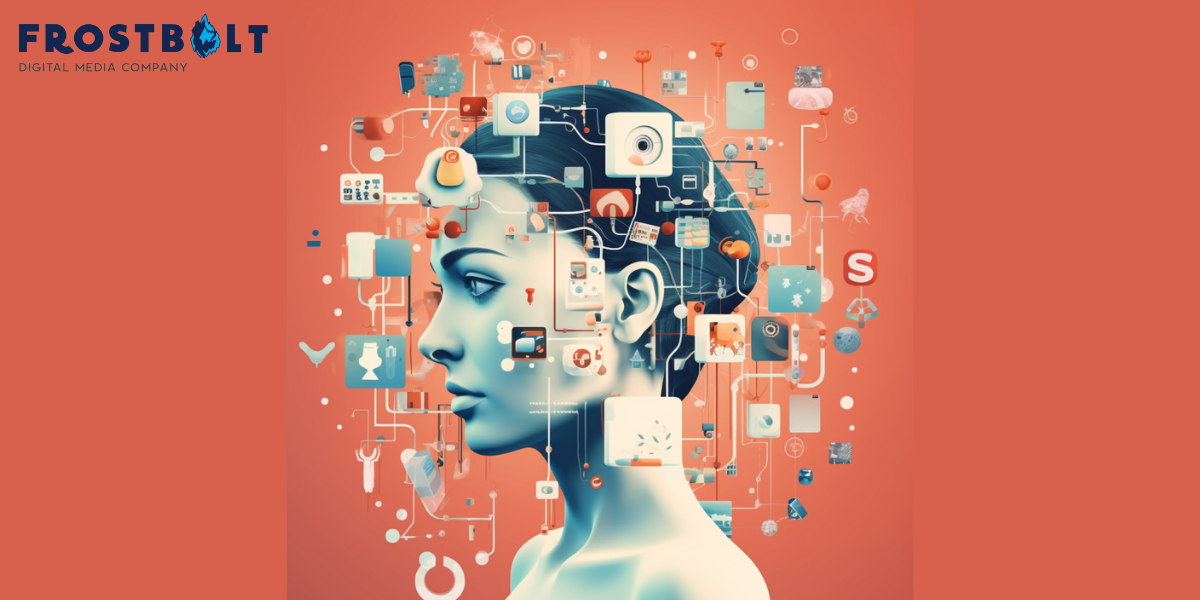In the contemporary landscape of the business realm, maintaining competitiveness necessitates embracing cutting-edge technologies. For professionals in the marketing domain, this entails adopting sophisticated tools that not only streamline tasks but also enhance customer experiences to unprecedented levels. At the forefront of this digital transformation are AI marketing platforms, which are revolutionizing the industry by reshaping the approach businesses take to engage with their target demographics.
This comprehensive guide is dedicated to exploring the realm of AI marketing in-depth, encompassing its operational mechanisms, practical applications in real-world scenarios, challenges encountered, and the myriad benefits it offers. Prepare to embark on a journey delving into the core of contemporary marketing strategies, as we unravel the intricacies of AI-driven marketing solutions.
Unraveling AI Marketing

AI marketing represents a fusion of artificial intelligence technologies with traditional marketing practices, aimed at automating decision-making processes based on comprehensive data analysis and observations of audience behaviors and economic trends. By leveraging sophisticated algorithms and machine learning capabilities, AI marketing platforms empower marketers to craft tailored messages and strategies, delivering personalized experiences that resonate with individual customers. Generative AI, a subset of AI, plays a pivotal role in digital marketing, either augmenting marketing teams’ capabilities or autonomously executing tactical tasks with minimal human intervention, thereby enhancing efficiency and efficacy.
Applications Across the Marketing Spectrum
- Data Analysis: AI excels at processing vast amounts of marketing data from disparate sources, extracting invaluable insights that would otherwise be buried in a sea of information.
- Natural Language Processing (NLP): NLP enables the creation of human-like language for content generation, customer service interactions, and personalized experiences, fostering deeper engagement with customers.
- Media Buying: AI-driven algorithms predict the most effective ad placements and marketing channels, optimizing strategies to reach target audiences with precision and maximize returns on investment.
- Automated Decision-Making: AI marketing tools assist in selecting optimal marketing strategies based on historical data analysis and real-time inputs, facilitating agile decision-making processes.
- Content Generation: AI generates diverse content formats, including video captions, email subject lines, web copy, and blogs, tailored to specific marketing objectives and audience preferences.
- Real-time Personalization: AI dynamically adjusts marketing assets such as web pages, social media posts, and email content to match individual customer preferences, driving desired actions and enhancing engagement.
Understanding the Foundations: Types of AI Marketing Solutions
Key components underpinning AI marketing solutions include:
- Machine Learning: Algorithms analyze data and historical trends, continually refining marketing campaigns and strategies based on evolving insights and customer behaviors.
- Big Data and Analytics: AI processes vast datasets, distilling actionable intelligence to inform future marketing endeavors and drive informed decision-making.
- AI Marketing Platforms & Tools: Centralized platforms serve as hubs for extracting intelligent marketing insights from extensive datasets, guiding data-driven strategies and enhancing marketing efficiency.
Navigating the Challenges of AI Marketing
While the potential of AI in marketing is immense, it comes with its fair share of challenges:
- Training Time and Data Quality: AI tools require extensive training and high-quality data to make accurate decisions, necessitating robust data quality assurance measures.
- Privacy Concerns: Ethical use of consumer data is paramount to maintain regulatory compliance and consumer trust, demanding stringent data privacy standards and transparent data handling practices.
- Gaining Stakeholder Buy-In: Demonstrating the value of AI investments to stakeholders can be challenging, requiring clear measurement metrics and robust generative attribution models to quantify qualitative gains.
- Deployment Best Practices: Establishing comprehensive deployment strategies and best practices is crucial to ensure the long-term efficacy and success of AI marketing initiatives.
- Adapting to a Shifting Landscape: The emergence of AI in marketing heralds a paradigm shift in traditional marketing operations, necessitating a reassessment of job roles and skill requirements within marketing teams.
Navigating the Pitfalls of AI in Marketing
Avoiding common pitfalls is essential when integrating AI into marketing strategies:
- Legacy Models and Tech Limitations: Overreliance on outdated models and technologies can hinder AI’s effectiveness in addressing contemporary marketing challenges, necessitating adaptation to modern data-driven methodologies.
- Transparency and Interpretability: Ensuring transparency in AI algorithms and decision-making processes fosters trust and credibility, mitigating concerns regarding biased or opaque decision-making.
- Ethical Concerns and Bias: Addressing ethical concerns and biases inherent in AI algorithms is critical to avoid discriminatory marketing practices and maintain consumer trust.
- Balancing AI and Human Expertise: Achieving a harmonious balance between AI capabilities and human expertise is essential to leverage the strengths of both approaches and craft more effective marketing strategies.
- Data Privacy and Security Risks: Safeguarding consumer data from breaches and unauthorized access is paramount to protect brand reputation and maintain consumer trust.
- Access to Proprietary Data: Ensuring the confidentiality and security of proprietary data is essential to preserve competitive advantage and prevent unauthorized data usage by AI providers.
Harnessing AI in Marketing Campaigns: Best Practices

To maximize the benefits of AI in marketing campaigns, consider the following best practices:
- Establish Clear Goals: Define clear goals and key performance indicators (KPIs) to measure the success of AI-driven marketing initiatives effectively.
- Ensure Data Privacy Standards: Maintain compliance with data privacy regulations and standards to uphold consumer trust and confidence in your marketing efforts.
- Acquire Data Science Talent: Collaborate with data science experts to collect, analyze, and interpret data, ensuring optimal performance and insights from AI marketing platforms.
- Maintain Data Quality: Implement robust data cleansing and maintenance processes to ensure accurate insights and decision-making from AI-driven analyses.
- Create an Integrated Strategy: Integrate AI capabilities seamlessly into your existing marketing strategy to enhance efficiency and effectiveness across all marketing channels.
Selecting the Right AI Marketing Platform
Choosing the appropriate AI marketing platform is critical for success, considering factors such as capabilities, transparency, and alignment with your organization’s marketing goals and objectives.
Unlocking the Benefits of AI in Marketing
AI offers numerous benefits for marketing endeavors, including increased return on investment (ROI), enhanced customer relationships, improved measurement capabilities, faster decision-making, and more personalized customer experiences.
Examples of AI in Action
AI is applied across various industries and marketing use cases, from programmatic media buying and message customization to granular personalization, conversational experiences, predictive analytics, and marketing attribution.
In conclusion, AI marketing represents a paradigm shift in how businesses engage with customers and optimize marketing strategies. By understanding its applications, challenges, and best practices, organizations can harness the full potential of AI to drive growth, innovation, and customer-centricity in their marketing endeavors, setting the stage for continued success in the digital age.
